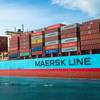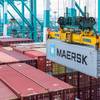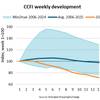Port Security Takes Center Stage
Security of our airborne and waterborne commerce has now become a major national issue. This is an opportunity for the USCG to bring the maritime industry together for the common good. The Secretary of the Department of Transportation (DOT) has directed the USCG improve waterborne security in our port areas, as is being done with the air travel industry. Initially this meant that individual Coast Guard Captain of the Port (COTP) units and Districts were to quickly develop plans and methodology suitable to each individual port area.
There is no question that the USCG is taking great pains attempting to minimize the impact upon maritime commerce while incrementally increasing waterborne security. The USCG knows that the only real way to prevent the type of sabotage that we are worried about is to place armed personnel on every vessel within the U.S. Territorial Sea. If maritime sabotage does occur this may be the only appropriate course of action. Our ports and waterways are so complex and diverse that variations from one port area to another are appropriate, certainly on a short term basis and probable in the long term. It is likely that ocean going deep draft traffic will be treated somewhat differently from non-ocean going vessels because potential threats are different.
These increased security measures at the minimum request all facility and vessel operators to review their security procedures and possibly update them. Formal security plans are not currently required. In some ports data concerning vessel movements, cargo movement information and crewlists are required. Some ports require specific authorization from the USCG Captain of the Port to navigate at all. Specific liquid cargo movements and cargo handling will come under close scrutiny in some ports and not in others.
Containers will be of particular concern and will be extremely difficult to keep secure. It is not at all clear how passenger cruise lines will be impacted around the country. The variations from one port area to another are too numerous to specifically enumerate. The information is however available from each local Captain of the Port office around the country. It will likely be very difficult for individual vessels and operators to become expert in the broad range of security expectations from one port to another, but it is essential to our survival as a successful commercial nation. Coast Guard Area Commanders (both East and West) have promulgated special regulations under 33 CFR Part 165 concerning Naval Vessel Protection Zones. These zones limit and control traffic in close proximity to naval combatants, auxiliaries, and vessels leased to or chartered by the U.S. Navy. All vessels within 500 yards of a naval vessel must operated at minimum speed and proceed as directed by the authorized officers (USCG Captains of the Port or other designated officer). Vessels may not approach within 100 yards of a naval vessel without permission of these authorized officers.
Clearly, the goals of Port Security are to obstruct terrorism and not impede commerce. While the mechanisms to accomplish this will change and evolve over the coming months, the USCG seems to be making great efforts in working closely with the maritime industry to achieve both of these goals.
Charley Havnen is a Commander USCG Ret. His organization can help you with your vessel construction project, regulatory problems, vessel manning issues, procedure manuals, accident analysis or expert witness. His organization can do what you can?t or don?t want to do. He can be reached by contacting the Havnen Group: (800) 493-3883 or (504) 394-8933, fax: (504) 394-8869.












